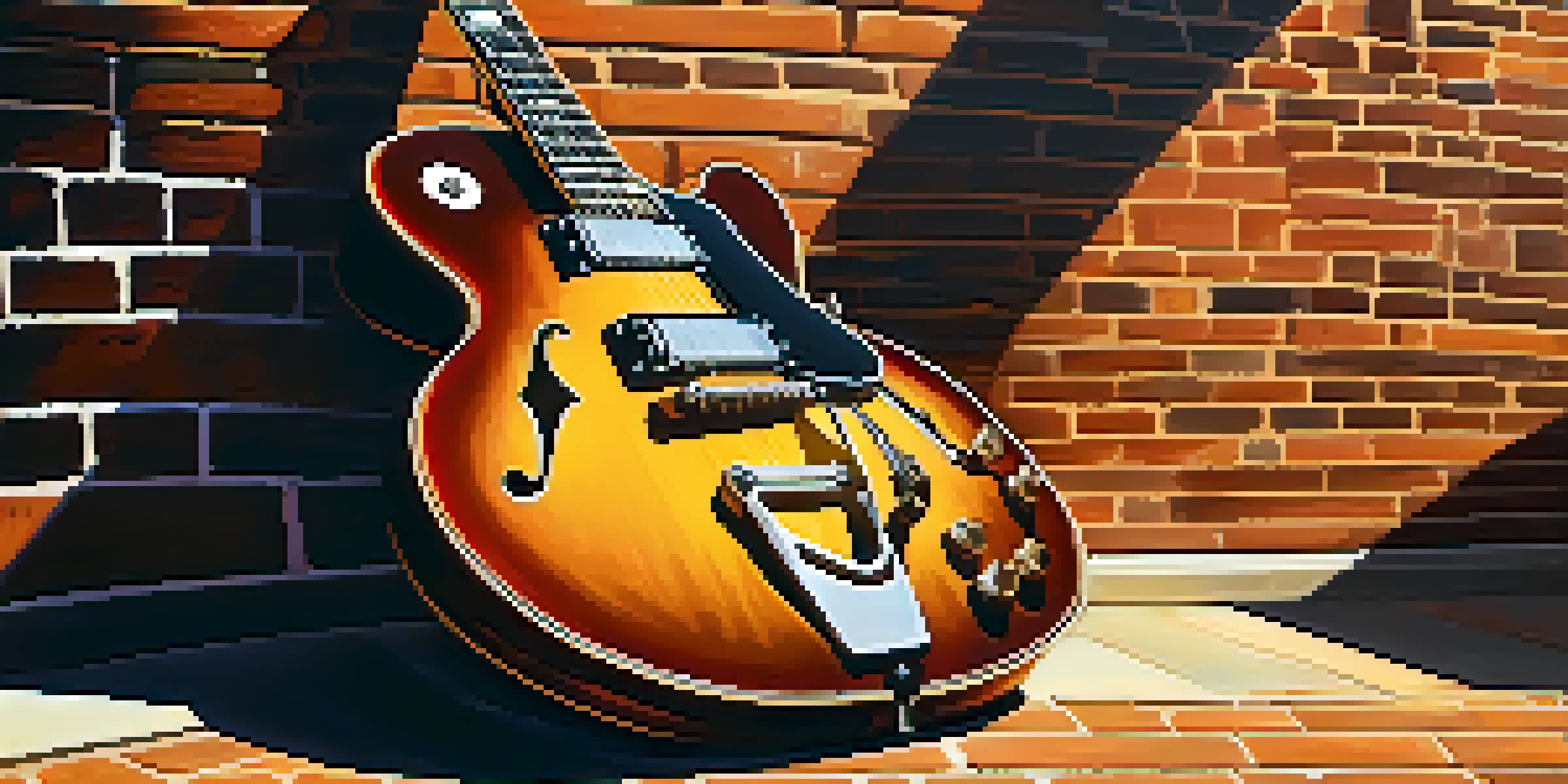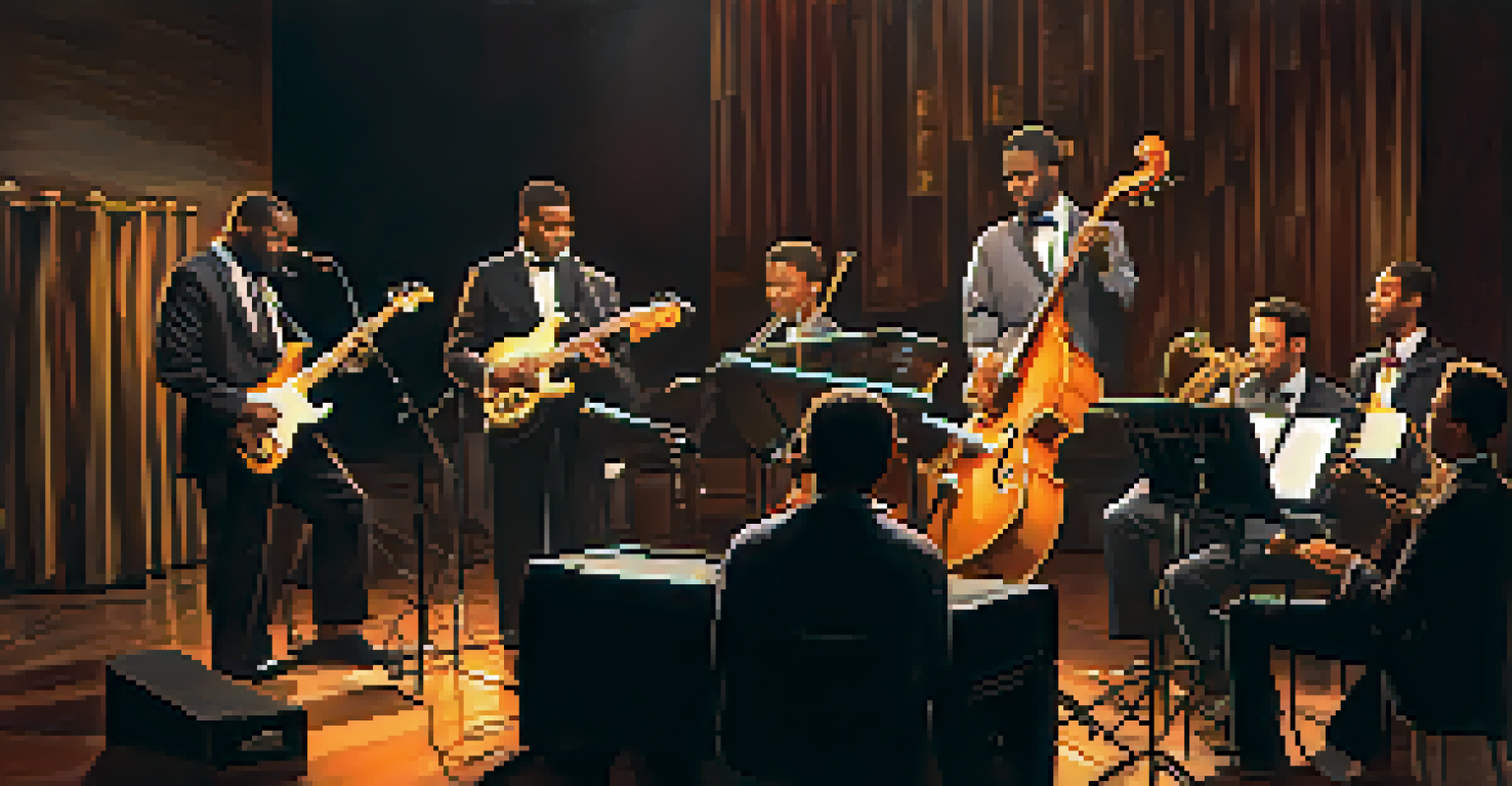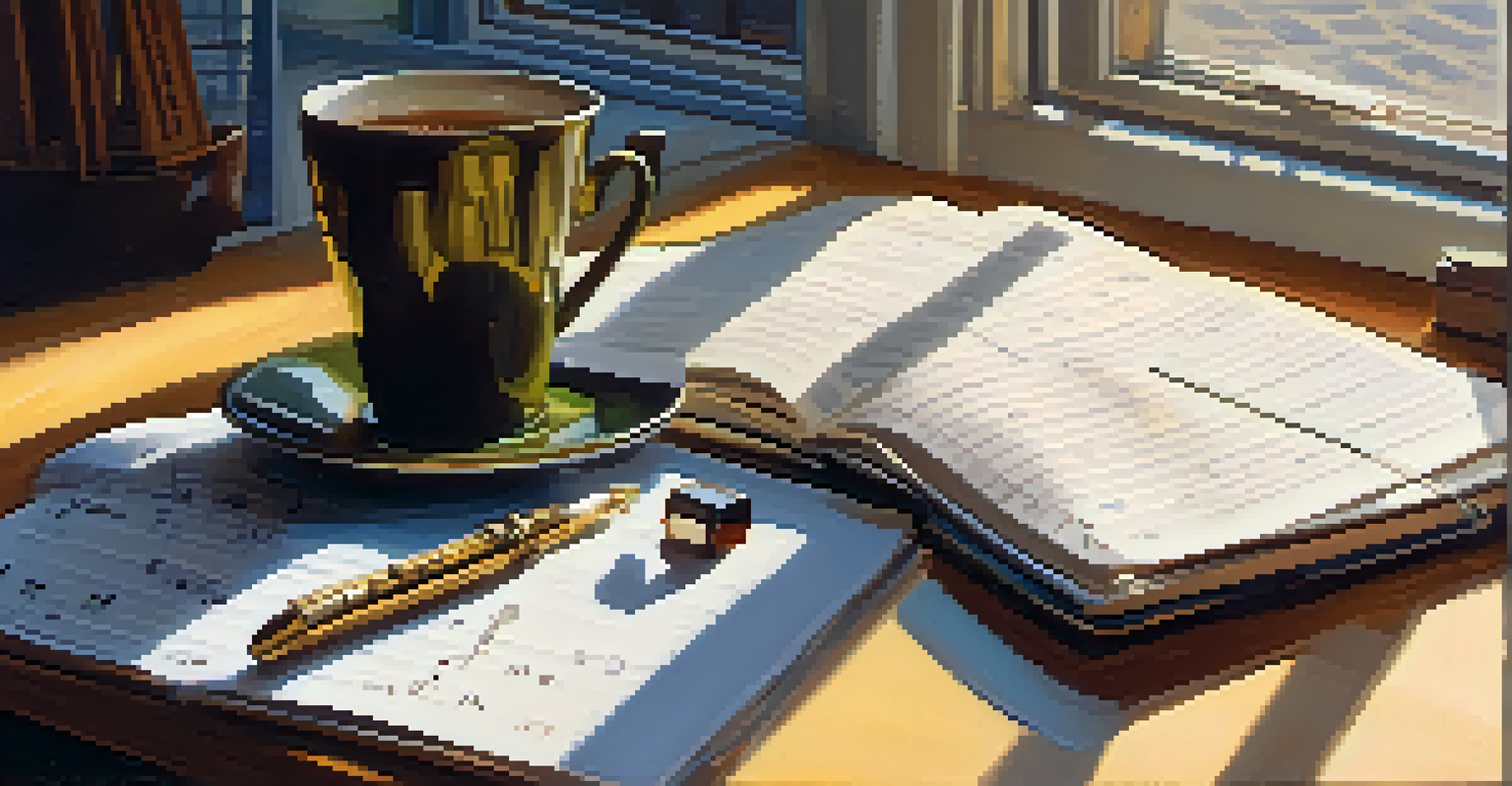Guitar Scales Essential for Jazz Improvisation

Understanding the Role of Scales in Jazz Improvisation
In jazz, scales are the building blocks of improvisation, helping musicians create melodies that resonate with the style's complexity and spontaneity. Without a solid grasp of these scales, improvisation can feel aimless, almost like trying to navigate a city without a map. Scales provide a framework, guiding your notes and chords while allowing your creativity to flow freely.
In jazz, scales are the building blocks of improvisation, helping musicians create melodies that resonate with the style's complexity and spontaneity.
Jazz is unique in that it encourages musicians to express themselves through improvisation, often in real-time. This means knowing your scales isn't just about memorization; it's about understanding how they fit into the broader context of jazz harmony. Think of scales as the vocabulary of a language; the more words you know, the more fluently you can converse.
Ultimately, mastering jazz improvisation requires a balance of technical skill and personal expression. By exploring essential guitar scales, you'll build a solid foundation that not only improves your playing but also enhances your ability to convey emotion through music.
The Major Scale: A Fundamental Building Block
The major scale is often the first scale introduced to new guitarists, and for good reason. It serves as a foundation for many musical concepts and is a key player in jazz improvisation. With its cheerful and uplifting sound, the major scale can be a great starting point for crafting memorable melodies.

When improvising over a major chord progression, using the major scale allows you to hit the right notes that complement the harmony. For instance, if you're jamming over a C major chord, the C major scale (C, D, E, F, G, A, B) gives you a palette of notes to create your solos. Exploring different positions on the guitar neck can also enhance your understanding of the scale's versatility.
Scales are crucial in jazz improv
Understanding scales provides a framework for musicians to enhance their creativity and navigate jazz improvisation effectively.
By mastering the major scale, you'll not only improve your improvisational skills but also gain insight into the relationships between chords and melodies. This foundational knowledge will support your exploration of more complex scales and jazz concepts down the line.
The Minor Scale: Adding Depth and Emotion
Much like the major scale, the minor scale is essential in jazz, bringing a different emotional flavor to your improvisation. The natural minor scale, known for its more somber and introspective sound, can evoke feelings that resonate deeply with listeners. For example, the A minor scale (A, B, C, D, E, F, G) can be used to craft solos that capture a range of emotions.
The beauty of jazz lies in its spontaneity, and knowing these essential scales equips you to navigate the music with confidence and creativity.
In jazz, the minor scale often accompanies minor chord progressions, adding a rich layer to your solos. When improvising over an A minor chord, utilizing the A minor scale allows you to explore darker tones and create melodies that tell a story. The contrast between the major and minor scales can be a powerful tool in your improvisational toolkit.
Moreover, experimenting with different minor scale variations, such as the harmonic or melodic minor, can open up even more expressive possibilities. By incorporating these into your playing, you'll not only enhance your solos but also create a deeper connection with your audience.
The Pentatonic Scale: A Versatile Tool
The pentatonic scale, consisting of just five notes, is a favorite among many jazz musicians due to its simplicity and versatility. This scale can easily be adapted to various musical contexts, making it a great choice for improvisation. The major and minor pentatonic scales provide essential frameworks that can be applied to countless jazz standards.
For instance, the C major pentatonic scale (C, D, E, G, A) can help you create catchy phrases that fit seamlessly into a major jazz context. Similarly, the A minor pentatonic scale (A, C, D, E, G) complements minor chord progressions beautifully. The limited number of notes also makes it easier to focus on phrasing and rhythm, two crucial elements in jazz.
Major and Minor Scales Defined
The major and minor scales serve as foundational elements in jazz, each contributing unique emotional qualities to improvisation.
Incorporating the pentatonic scale into your improvisation can lead to unique melodic ideas while keeping your solos accessible. By blending pentatonic phrases with more complex scales, you’ll create a dynamic sound that captivates your audience.
The Blues Scale: Infusing Your Playing with Soul
The blues scale is a modified version of the pentatonic scale, with an added 'blue' note that gives it a distinct, soulful sound. This scale is widely used in jazz, blues, and rock, making it a versatile addition to your improvisational arsenal. The inclusion of the blue note adds tension and release, allowing you to convey deeper emotions in your solos.
For example, the C blues scale (C, Eb, F, F#, G, Bb) can be effectively used over dominant chord progressions, creating a sound that's both edgy and expressive. When improvising, this scale provides an opportunity to explore the nuances of rhythm and phrasing, as the 'blue' note can be bent or played with varying intensity to enhance your expression.
By incorporating the blues scale into your playing, you can tap into the rich tradition of jazz and blues music while adding your unique voice. It’s a powerful tool for creating memorable moments in your improvisation and connecting with your audience on a deeper level.
The Dorian Mode: A Unique Sound for Jazz
The Dorian mode is one of the seven modes derived from the major scale and is particularly favored in jazz for its distinctive sound. This mode is often described as a minor scale with a raised sixth, providing a unique blend of melancholy and brightness. For example, the D Dorian mode (D, E, F, G, A, B, C) can be particularly effective when improvising over minor chords and ii-V-I progressions.
Using the Dorian mode allows jazz guitarists to explore fresh melodic ideas while maintaining the harmonic richness of jazz music. By emphasizing the raised sixth note, you can create lines that feel both modern and rooted in tradition. This makes the Dorian mode a powerful tool for improvisers looking to expand their musical vocabulary.
Explore Unique Modes for Depth
Modes like Dorian and Mixolydian add distinctive flavors to improvisation, enriching the musician's ability to express complex emotions.
Additionally, experimenting with the Dorian mode can inspire new compositions and arrangements. By understanding how this mode interacts with chord changes, you can craft solos that stand out while remaining cohesive within the jazz context.
The Mixolydian Mode: Perfect for Dominant Chords
The Mixolydian mode is another important scale in jazz, particularly when it comes to improvising over dominant seventh chords. This mode can be thought of as a major scale with a lowered seventh, giving it a slightly bluesy feel. For example, the G Mixolydian scale (G, A, B, C, D, E, F) works beautifully over a G7 chord, providing a rich palette for creating engaging melodies.
The Mixolydian mode encourages improvisers to explore tension and resolution in their solos, allowing for a dynamic interplay between notes. This scale is particularly effective in jazz fusion and funk, where its unique sound can add depth and excitement to your playing. By integrating the Mixolydian mode into your improvisation, you'll be able to craft solos that resonate with both traditional and modern jazz audiences.

Moreover, practicing the Mixolydian mode in different keys and positions will enhance your overall guitar skills, making you a more versatile player. As you grow more comfortable with this scale, you'll find yourself incorporating it seamlessly into your solos, enriching your jazz improvisation toolkit.
Conclusion: Embracing Scales for Jazz Improvisation
As we’ve explored, guitar scales are essential tools for jazz improvisation, each offering its own unique flavor and emotional depth. From the foundational major and minor scales to the expressive blues and Dorian modes, having a solid understanding of these scales will significantly enhance your improvisational skills. They not only provide a framework for your solos but also allow you to express your individuality as a musician.
The beauty of jazz lies in its spontaneity, and knowing these essential scales equips you to navigate the music with confidence and creativity. Remember, the goal isn't just to play the right notes but to convey your musical story. With practice and exploration, you’ll find ways to blend these scales into your playing, creating a sound that's truly your own.
So grab your guitar, delve into these scales, and let your improvisational journey begin. The world of jazz is vast and ever-evolving—embrace it with an open heart and mind, and watch your musical expression flourish.